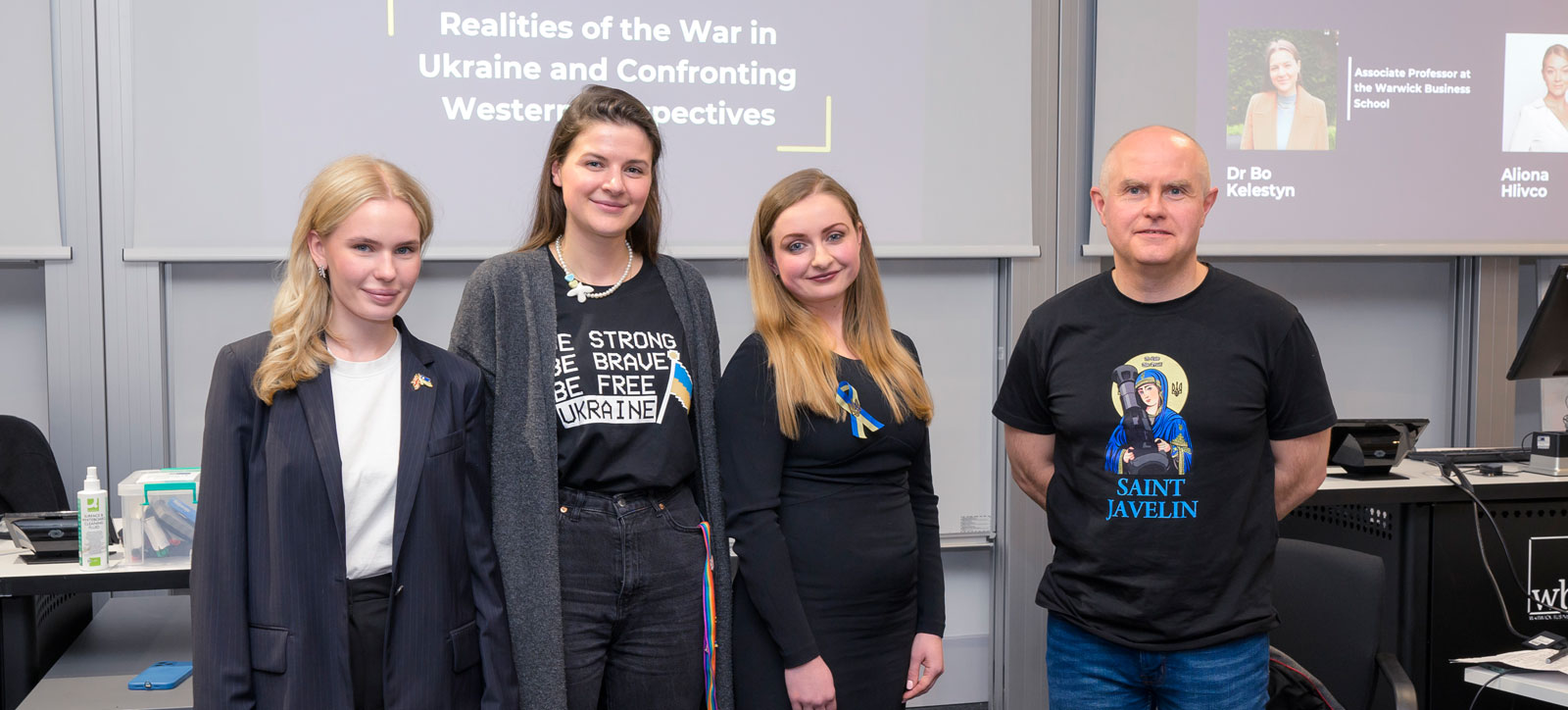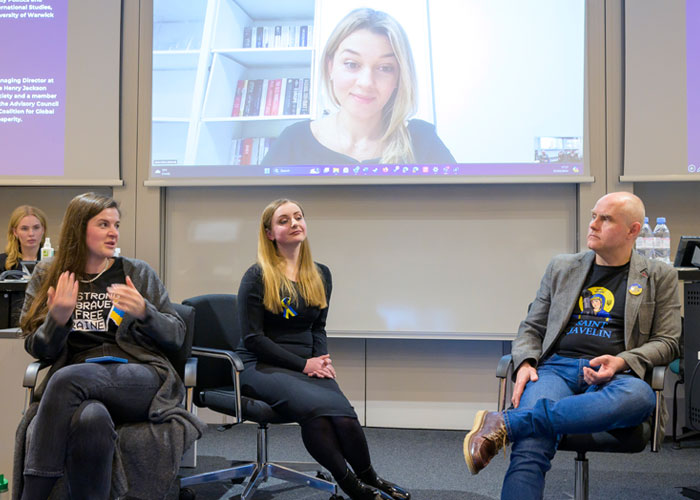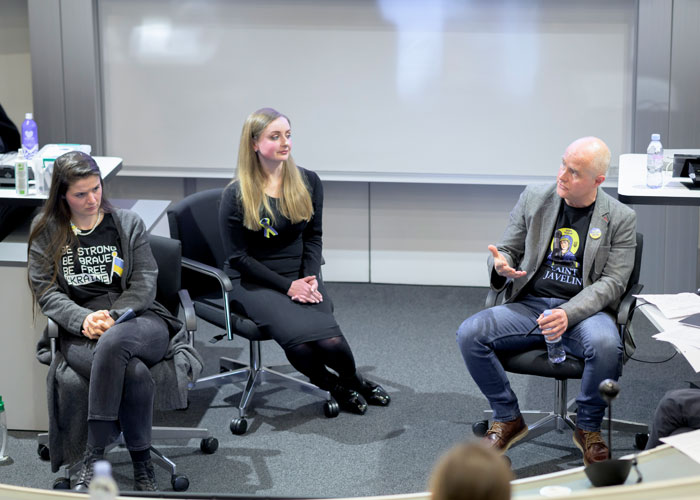
Insightful: (l-r) WBS student Anna Kucher with panelists Bo Kelestyn, Olena Miliienko, and Vlad Mykhnenko
Ukrainian students came together to mark two years since Russia started its full-scale war on their country at a special event at Warwick Business School.
A panel discussion took place to mark two years since the invasion of Ukraine, bringing together Ukrainian staff and students from the University of Warwick along with refugees from the local community.
Speakers taking part in the panel discussion, which was organised by the Warwick Ukrainian Student Society, were Bo Kelestyn, Associate Professor at WBS, Vlad Mykhnenko, Associate Professor of Sustainable Urban Development at the University of Oxford, Olena Miliienko, a Visiting Associate Professor in the Politics and International Studies department at the University of Warwick, and Aliona Hlivco, Managing Director of the Henry Jackson Society and a former Ukrainian politician.
Remarkably, despite the ongoing war, Dr Kelestyn revealed Ukraine has become a digital leader thanks to the Government’s app Diia, which has become a lifeline for people in the country, with more than 130 public services transferred to the app, such as driving licences, passports and ID cards.

Dr Kelestyn said: “It reached a million users in just four days, quicker than ChatGPT. The fact Ukraine is being seen as a digital leader because of Diia is fantastic in the context of the war.”
The WBS academic also revealed how the Ukrainian education system is being rebuilt with the help of UK universities like Warwick. She created the Leadership for Educational Transformation programme in collaboration with the Ukrainian Leadership Academy and helped to facilitate the signing of a memorandum of understanding with the Ukrainian Ministry of Education and Science.
“By March 2023 seven universities had been completely destroyed and 63 damaged,” said Dr Kelestyn. “The UK is showing a lot of goodwill to rebuild the Ukraine education sector and come together with its Ukrainian partners to transform the primary, secondary and higher education when the war is over.”
Dr Mykhnenko also revealed how cities like Mariupol are working on plans on how to rebuild when the war ends.
“We want to make sure that the plans are ready to go as soon as the Ukrainian tanks roll through the town,” said Dr Mykhenko, who is working with the Mayor and authorities of Mariupol on the plans.

For these plans to happen, though, Russia must be defeated and Ms Hlivco, who is a regular in the media as a foreign policy expert, reminded everybody that the war actually started 10 years ago when the conflict with Russia began in the east of the country.
Ms Hlivco, who revealed her brother is a soldier on the frontline, said: “As long as Putin is in power the war will not be stopped, he needs to be removed. That will only happen if Russia loses the war and the Russian people see all the casualties, which it has been hiding so well from them.”
Warwick Ukrainian Student Society Treasurer Anna Kucher believes events like this are vital to keep Ukraine in the public eye and highlight its cause.
“It was an incredibly insightful discussion,” said Anna, who is studying BSc Accounting & Finance. “I am grateful to the University of Warwick for engaging with us and helping Ukraine. It is important we keep these conversations going and making people aware of what is happening in Ukraine as well as giving people hope here and in Ukraine. Our countrymen still in Ukraine need to know that we are with them.”
Deputy Pro Vice Chancellor (Europe) and Chair of the University of Warwick’s Ukraine Working Group, Professor George Christou, added: “It’s inspiring to see the students of the Ukrainian Society organise events like this, and to see the support they are able to draw upon from Warwick and the wider community. This panel discussion has raised awareness and facilitated important conversations about the present situation and the future of Ukraine.”




 X
X Facebook
Facebook LinkedIn
LinkedIn YouTube
YouTube Instagram
Instagram Tiktok
Tiktok